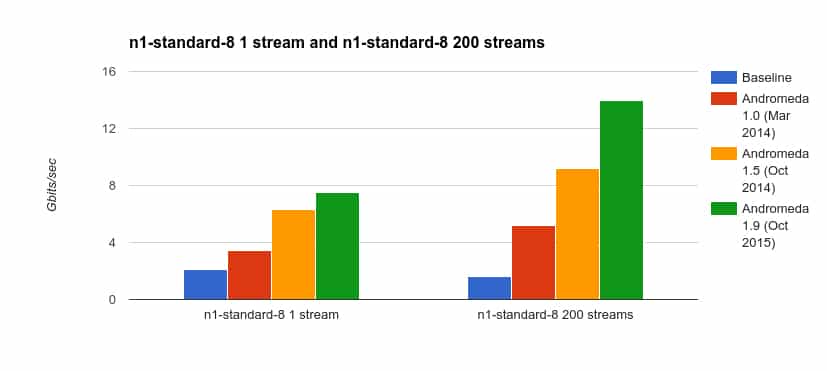 Google Cloud Platform customers rely on Google’s global network for their service. With the modern media-rich and web applications customers need great network performance. Google has made several announcements around improving network performance including the general availability of HTTPS Load Balancing, a software-defined network virtualization stack, Andromeda, and the introduction of Cloud Router and Subnetworks.
Google Cloud Platform customers rely on Google’s global network for their service. With the modern media-rich and web applications customers need great network performance. Google has made several announcements around improving network performance including the general availability of HTTPS Load Balancing, a software-defined network virtualization stack, Andromeda, and the introduction of Cloud Router and Subnetworks.
Google Cloud Platform customers rely on Google’s global network for their service. With the modern media-rich and web applications customers need great network performance. Google has made several announcements around improving network performance including the general availability of HTTPS Load Balancing, a software-defined network virtualization stack, Andromeda, and the introduction of Cloud Router and Subnetworks.

Along with the other new features to work with Google’s “speed is a feature,” is the inclusion of Akamai into Google’s CDN Interconnect program. Google and Akamai aim to reduce latency and costs to their customers by taking origin traffic from Google egressing out to select Akamai CDN locations will take a private route on Google’s edge network. Akamai peers with Google at a growing number of points-of-presence across Google’s extensive global networking footprint that enables customer to receive the responsiveness they expect from Google’s services.
The newly announce features are:
- GA of HTTPS Load Balancing – With over 70 global network points of presence, Google’s private fiber network connects data centers to run customers applications. High latency and lack of availability can be detrimental to these applications. HTTPS Load Balancing ensures that users get the responsiveness they expect from Google.
- Andromeda – Andromeda is Google’s new software-defined network virtualization stack that helps increase throughput.
- Subnetworks – Customers can now segment their IP space into regional prefixes gaining fine-grained control over the full logical range of their IP space while avoiding the need for multiple networks. Also VPN users will be able to configure their VPN gateway with different destination IP ranges per-region in the same network.
- Cloud Router – Enterprise-grade VPN to Google gets dynamic routing. Network topology changes on either end propagate automatically using BGP, eliminating the need to configure static routes or restart VPN tunnels.
Availability
These new enhancements are available now.
Sign up for the StorageReview newsletter
